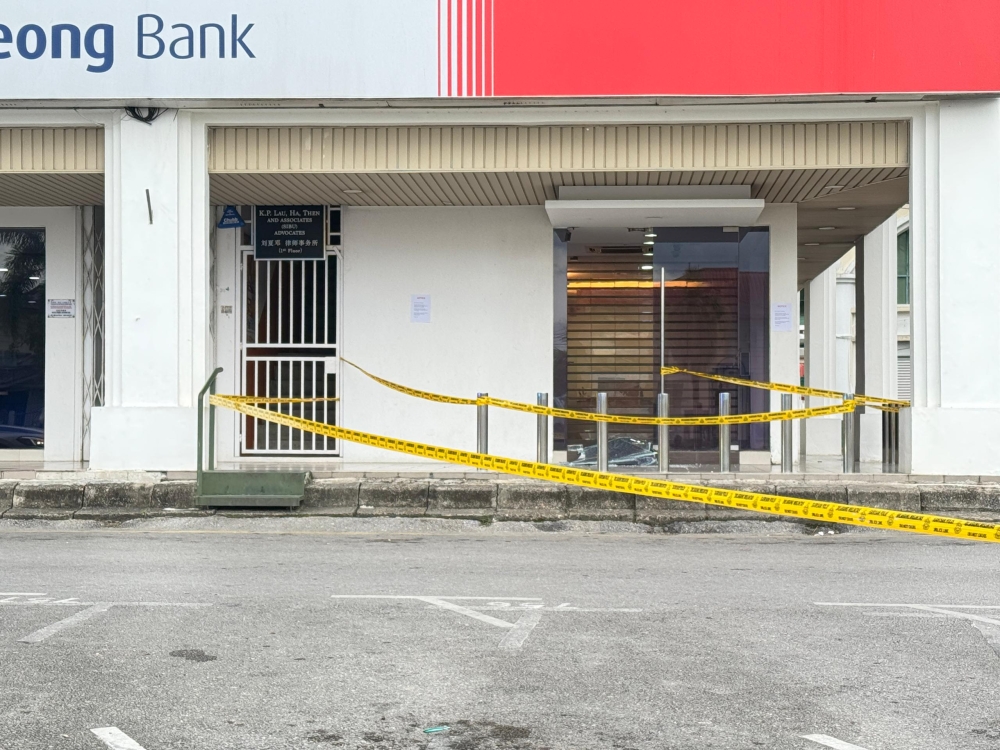KUALA LUMPUR, Nov 7 — Malaysia is ranked one of the highest achieving countries in women’s educational attainment in the Global Gender Gap Report of 2018, said Deputy Prime Minister Datuk Seri Dr Wan Azizah Wan Ismail.
Dr Wan Azizah said that in 2018, the female enrolment rate in tertiary education was 48 per cent compared with 38 per cent for men.
“I am happy to report some of the progress Malaysia has made in the Global Gender Gap Report of 2018.
...and girls consistently outperform boys in standardised learning assessments, including in math and science,” she said in her video-recorded keynote address at the plenary session titled “Unlocking Women’s Full Potential” in conjunction with the Malaysia Sustainable Development Goals (SDG) Summit 2019 here today.
Elaborating, Dr Wan Azizah, who is also Women, Family and Community Development Minister, said the United Nations has generously acknowledged Malaysia to be a world leader in encouraging girls and women to participate in science.
While throughout the world female researchers have been under-represented, in Malaysia it is quite different where almost half of all Malaysian researchers are women.
However, despite these achievements, Malaysia has struggled to unlock women’s full potential beyond educational attainment.
She pointed at the female labour force participation rate of 55.2 per cent, which shows women represent an underutilised source of talent for Malaysia that aims to become a high-income and developed nation.
All around the world, women are laden with a “double burden”, that is women participate equally in paid employment but spend a bigger proportion of their time on unpaid care work compared with men.
Out of economic necessity, some of these women resort to working in informal settings, risking their safety, wellbeing and incomes being protected.
“While we have steadily increased female labour force participation since 2010, there remains significant gaps between men’s and women’s economic opportunities.
“These are the issues that my ministry, the Women, Family and Community Development Ministry, is studying closely,” she said, adding that many studies have proven the economic case for closing these gaps.
The World Bank estimates that removing barriers to women’s economic participation could increase income per capita by 23.7 per cent in the short term and up to 26.2 per cent in the long term.
“This implies an average income gain of about RM9,400 for each Malaysian each year,” she said.
Moving forward, she stressed that it’s the government’s priority to address sources of gender disparities.
One such area that offers tremendous potential is the use of technology to promote the empowerment of girls and women.
“My ministry has been actively exploring new technological tools to improve our policies and interventions, such as disseminating sexual and reproductive health education materials through our Kafe@teen mobile application, gathering public input on sexual harassment via a mass online survey that was shared on social media, and spatial mapping of various social issues, including teenage pregnancies,” she said.
She added that the recent completion of my Ministry’s Gender Mainstreaming Framework, done in collaboration with the United Nations, will focus on the key role of sex-disaggregated data in integrating gender perspectives and targets into all government planning and budgeting.
This effort mirrors the importance of gender mainstreaming across all 17 SDGs, she said.
In September 2015, all 193 member countries of the United Nations unanimously adopted the 2030 Agenda for Sustainable Development and its implementation framework. The SDGs chart in detail a way forward to ensure a future that is sustainable for people, planet, peace and prosperity.
The 2030 Agenda is the most transformative and ambitious plan ever crafted by the global community with 17 goals, 169 targets and 232 indicators that balance the economic, social and environmental pillars of development. — Bernama



















